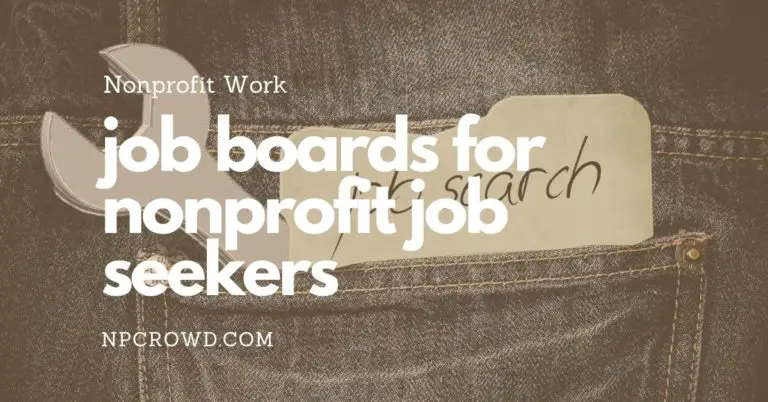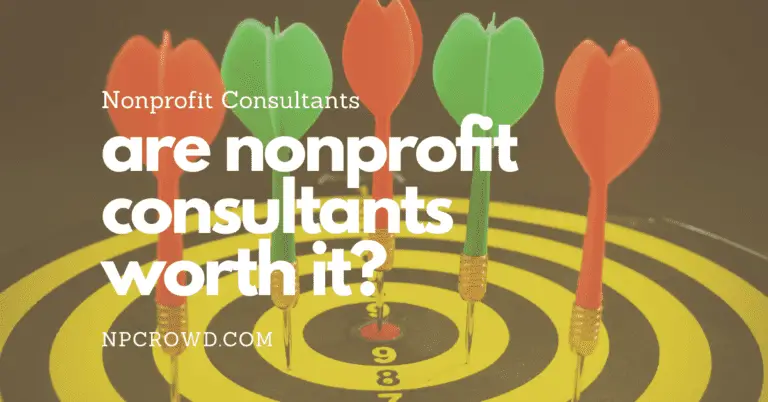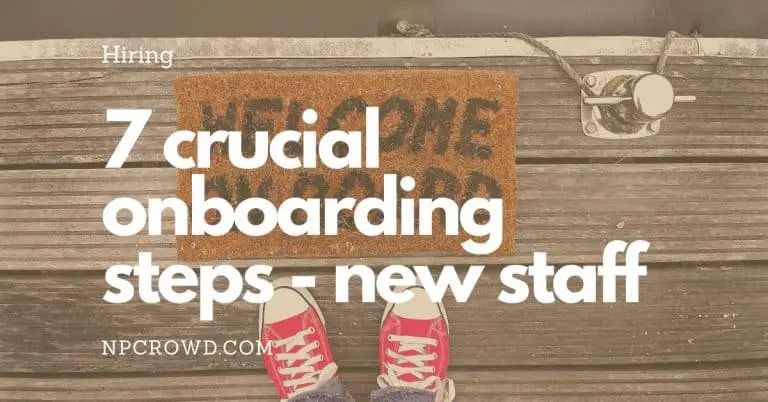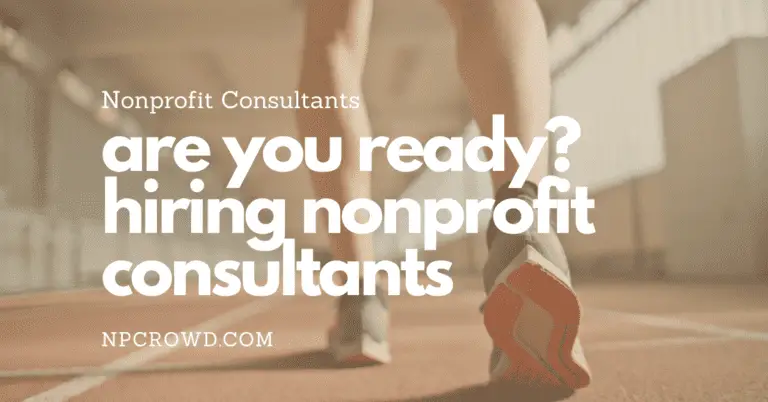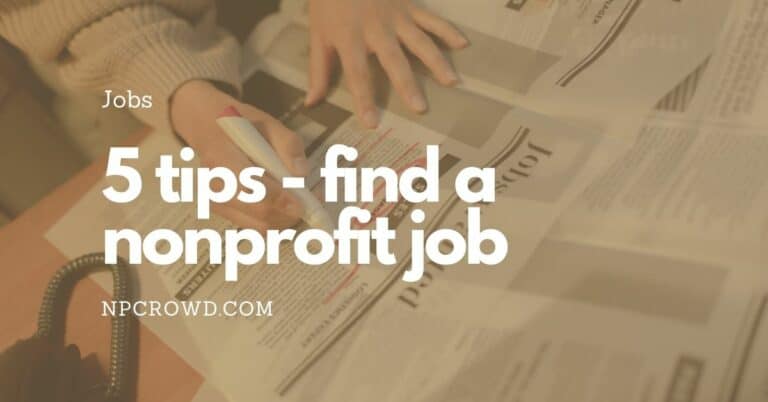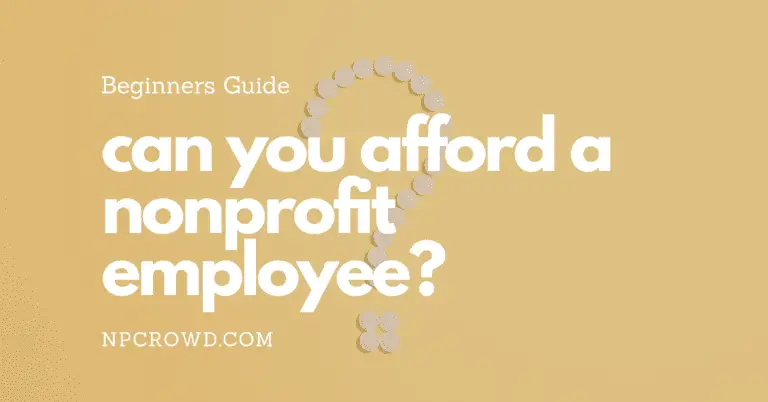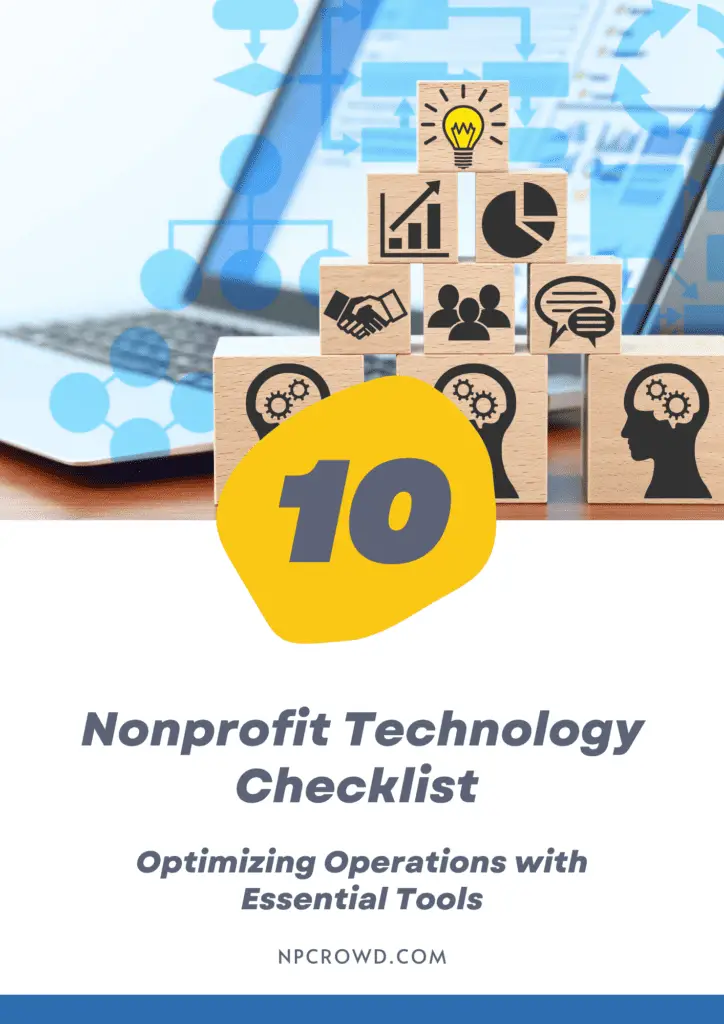Choosing the Ideal Consultant for Your Nonprofit
Disclaimer: This post may contain affiliate links. These links, if used and purchases made, we may earn a small commission. These affiliate programs do not impact the recommendations we make or the resources we refer you to. Our focus is on providing you the best resources for your nonprofit journey.
When it comes to running a nonprofit organization, there are times when you need outside help. Whether it’s for a specific project or to provide expertise in a particular area, finding the right consultant is crucial to ensure your nonprofit’s success. But with so many options out there, how do you choose the ideal consultant for your nonprofit?Don’t worry, we’ve got you covered! In this article, we will explore the essential steps in selecting the best consultant for your nonprofit. From conducting a thorough search to evaluating qualifications and expertise, we’ll guide you through the process to help you make the right choice.
Ready to find the perfect consultant? Let’s get started!
Key Takeaways:
- Conduct a thorough search to find the best consultant for your nonprofit’s needs.
- Evaluate the qualifications and expertise of potential consultants.
- Consider the consultant’s experience in your specific field or area of focus.
- Use the Request for Proposal (RFP) process to gather detailed information from potential consultants.
- Have one-on-one conversations with consultants to assess their knowledge, communication skills, and understanding of your nonprofit’s goals.
Using the Request for Proposal (RFP) Process
The Request for Proposal (RFP) process is an essential tool for selecting the best consultant for your nonprofit. It allows you to clearly communicate your project expectations and gather detailed information from potential consultants. By following a structured approach, you can ensure that you receive comprehensive and tailored responses that address your specific needs.
When crafting your RFP, it is important to include essential details such as your project timeline, budget, deliverables, and communication preferences. By providing consultants with this information upfront, you set clear expectations and enable them to respond with detailed proposals that align with your requirements.
Give consultants ample time to respond to the RFP. This allows them to thoroughly assess your project and formulate detailed responses that address your specific needs. It is essential to encourage consultants to provide comprehensive information about their experience, qualifications, and methodologies.
During the evaluation process, carefully review the proposals to ensure that the consultants have provided detailed responses. Assess whether their proposals demonstrate a clear understanding of your project and show how they will meet your goals. Avoid responses that feel generic or templated.
Here is a checklist to help you make the most of the RFP process:
- Clearly outline your project expectations and requirements in the RFP.
- Provide consultants with a realistic timeline for submitting their proposals.
- Consider including specific questions for consultants to address in their proposals.
- Review the proposals thoroughly, paying attention to the consultants’ expertise and experience.
- Reach out to consultants for clarification or additional information, if necessary.
- Consider conducting interviews or follow-up discussions with the most promising candidates.
- Ensure that the consultants’ proposals align with your nonprofit’s mission and goals.
- Make a well-informed decision based on the comprehensive responses received.
| Benefits of the RFP Process | Considerations |
|---|---|
|
|
The RFP process empowers nonprofit organizations to make informed decisions when selecting a consultant. By following best practices and utilizing the RFP process, you can gather detailed responses that allow for a thorough evaluation of potential consultants’ capabilities. This ensures that you find a consultant who not only meets your project expectations but also aligns with your nonprofit’s mission and goals.
One-on-One Conversations with Consultants
One-on-one conversations with consultants play a crucial role in the selection process for your nonprofit organization. These interviews provide an opportunity for you to dive deeper into their expertise, assess their communication skills, and gauge their understanding of your nonprofit’s goals. By asking detailed questions and evaluating their responses, you can effectively determine if they are the right fit for your project.
During these conversations, it is important to focus on effective communication. Consultants who can articulate their ideas clearly and concisely demonstrate their ability to convey complex information to stakeholders. Additionally, addressing any concerns or uncertainties you may have will help you gain a better understanding of how they approach potential challenges.
Timely follow-up is another crucial aspect to consider. Look for consultants who promptly respond to your inquiries and demonstrate their commitment to open and transparent communication. This responsiveness is indicative of their dedication and professionalism, fundamental qualities that contribute to a successful working relationship.
To ensure that the consultant truly understands your goals, share your organization’s vision and mission with them. Gauge their level of comprehension and assess whether they can align their expertise with your nonprofit’s objective. Consultants who demonstrate a genuine interest in your project are more likely to invest their time and energy into producing high-quality results.
Remember, one-on-one conversations provide valuable insights beyond what a written proposal can offer. Take advantage of this opportunity to establish a personal connection and gain confidence in their ability to drive your nonprofit towards success.
Below are some key factors to consider during one-on-one conversations with consultants:
- Ask detailed questions to assess their knowledge and expertise.
- Evaluate their communication skills and how well they address your concerns.
- Observe their timely follow-up and responsiveness.
- Ensure they demonstrate a genuine interest in your nonprofit’s goals.

Sample Questions for One-on-One Consultant Interviews:
- Can you provide examples of similar projects you have worked on in the past?
- How do you approach addressing concerns or challenges that may arise during a project?
- What is your preferred method of communication and how often can we expect updates?
- How do you ensure effective collaboration with stakeholders and our internal team?
- Can you share a specific instance where you achieved substantial results for a nonprofit organization?
Finding Out Who Will be Doing the Work
When considering hiring a larger firm for your nonprofit project, it is essential to understand which specific team members will be assigned to your project. While larger firms may have a solid reputation, it is crucial to assess the expertise and track record of the individuals who will be leading and executing your project.
Effective communication is another vital aspect to consider. Inquire about the consultant’s communication plan and how they will keep you updated throughout the project. A well-defined communication plan ensures efficient collaboration and minimizes misunderstandings.
By gaining clarity on the specific team members and their individual expertise, you can make a more informed decision and choose a consultant who aligns with your project’s requirements and goals. It also allows you to evaluate the reputation and past work of the team members who will be directly involved in your project.

Here is a table summarizing the key factors to consider when finding out who will be doing the work:
| Key Factors | Importance |
|---|---|
| Specific team members | High |
| Communication plan | High |
| Reputation | Moderate |
| Individual expertise | High |
By considering these factors, you can ensure that the team members assigned to your project have the necessary skills and experience to deliver the results you need.
Talking with References
One of the most valuable steps in selecting a consultant for your nonprofit is speaking with references who have worked with the consultants you are considering. This allows you to gain firsthand insights into their work style, expertise, and ability to meet project goals.
When talking with references, be sure to request references from both the firm being considered and the specific team or individuals who will be leading your project. By contacting previous clients, you can gather feedback on the consultants’ communication skills, work experience, and overall performance.
During these conversations, ask specific questions about similar projects the consultants have worked on and their success in delivering results. Understanding their previous work and experience in your nonprofit’s field can provide valuable insights into their suitability for your project.
Consider asking the following questions when speaking with references:
- How well did the consultants meet project goals and deliverables?
- Were they effective communicators throughout the project?
- Did they demonstrate expertise in similar projects?
- What is their work style and approach to problem-solving?
By gathering feedback from previous clients and understanding their experiences, you can make a more informed decision about whether the consultants are the right fit for your nonprofit. References play a vital role in confirming their work experience and reputation.
Client References Feedback:
| Previous Client | Project Description | Communication Skills | Overall Work Experience |
|---|---|---|---|
| Smith Foundation | Implemented fundraising strategies | Excellent | Positive |
| Jones Nonprofit | Organizational restructuring | Good | Mixed |
| Johnson Community Center | Strategic planning | Outstanding | Highly satisfied |
Based on the feedback received, you can evaluate whether the consultants have the necessary expertise, communication skills, and overall work experience to meet your nonprofit’s needs. These insights will help you make an informed decision and select the right consultant for a successful partnership.
Considering Expertise and Field of Focus
When choosing a consultant for your nonprofit, it is essential to consider their specific expertise and how it aligns with your project requirements. If your organization requires specialized knowledge in a specific field, such as Jewish content, it is advisable to hire a consultant with a proven track record in that area.
However, there are also benefits to considering consultants with a broader perspective, especially for projects that require strategic visioning or general expertise. The cross-pollination of ideas can bring fresh perspectives and unexpected benefits.
The Value of Specific Expertise
For nonprofits with project requirements that demand specific expertise, hiring a consultant who has a deep understanding of the field is crucial. A consultant with experience in Jewish content, for example, would possess valuable insights and knowledge that can significantly contribute to the success of your project.
Embracing a Fresh Perspective
On the other hand, considering consultants who bring a fresh perspective and diverse experiences can be valuable for certain projects. These consultants can provide a unique approach and insights that may not be apparent within a narrow focus. They offer the potential for new ideas and innovation, foster cross-pollination of ideas, and invite alternative solutions to complex challenges.
However, it is important to strike a balance and ensure that there is not a steep learning curve for consultants with a broader perspective. They should be able to grasp the specific needs and nuances of your project quickly and effectively.

| Considerations for Specific Expertise | Considerations for a Fresh Perspective |
|---|---|
|
|
A combination of specific expertise and fresh perspectives can create a dynamic collaboration that maximizes the potential of your project. By carefully considering your project requirements and evaluating consultants based on their expertise and field of focus, you can make an informed decision that aligns with your nonprofit’s goals.
Managing the Proposal Evaluation Process
Managing the proposal evaluation process is a crucial step in selecting the best consultant for your nonprofit. By following a strategic approach, you can streamline the selection process and ensure that you make an informed decision. Here are some key strategies to manage the proposal evaluation process effectively:
Narrowing Down the Field to Finalist Candidates
For larger projects, it is recommended to narrow down the responses to a pool of two to four finalist candidates. This allows for a more focused evaluation of the proposals and ensures that you are considering the most qualified consultants. By shortlisting the top candidates, you can allocate your time and resources more efficiently.
Streamlining the Evaluation Process
For smaller projects, it may be more effective to invite a select group of pre-vetted consultants to apply, rather than issuing an open Request for Proposal (RFP). This approach helps to ensure that you are only considering consultants who have the necessary expertise and qualifications for your specific project. By limiting the number of applicants, you can streamline the evaluation process and make a more informed decision.
Evaluating Proposals
When evaluating proposals, consider various factors such as the consultant’s experience, relevant expertise, proposed methodology, and pricing. Look for alignment between the consultant’s approach and the goals of your nonprofit. Pay attention to the clarity and completeness of their proposal, as well as their ability to effectively communicate their ideas.
Comparing Proposal Strengths and Weaknesses
Creating a table to compare the strengths and weaknesses of each proposal can provide a comprehensive overview and help you make a more objective decision. Assess factors such as relevant experience, demonstrated success in similar projects, and unique insights that the consultant brings to the table. Consider how well each proposal addresses the specific requirements outlined in your RFP or project brief.

Making the Final Selection
Once you have thoroughly evaluated the proposals and compared their strengths and weaknesses, it’s time to make the final selection. Consider factors such as pricing, consultant availability, and the overall fit with your nonprofit’s culture and values. It is important to choose a consultant who not only has the expertise and qualifications but also demonstrates a genuine interest in your nonprofit’s mission.
Establishing the Hiring Process and Setting Expectations
Before hiring a consultant for your nonprofit, it is crucial to establish a well-defined hiring process and set clear expectations. This ensures a smooth selection and onboarding experience for both your organization and the consultant. Here are key steps to consider:
Determine Stakeholder Involvement
Identify the key individuals within your organization who will be involved in the selection process. Determine their roles and responsibilities, as well as the stages at which they will be involved. This will help streamline communication and decision-making throughout the hiring process.
Consider Using a Request for Proposal (RFP)
An RFP can be a valuable tool in the consultant selection process. It provides a structured framework for soliciting proposals from potential consultants. Clearly outline your nonprofit’s needs, expectations, timeline, budget, and any specific requirements in the RFP. This helps ensure that all consultants provide comprehensive and tailored proposals that align with your organization’s goals.
Establish a Realistic Timeline
Setting a realistic timeline is essential to ensure a smooth hiring process. Consider factors such as the complexity of the project, the availability of stakeholders, and any external deadlines. Communicate the timeline to potential consultants and allow sufficient time for them to prepare and submit their proposals.
Define the Budget
Establishing a clear budget is crucial in the consultant selection process. Determine the financial resources available for the project and communicate this to potential consultants. Ensure that the budget aligns with the scope of work and the desired outcomes. This helps avoid any misunderstandings or financial constraints during the engagement.
Align on Goals and Expectations
Prior to hiring a consultant, it is essential to align on the goals and expectations for the project. Clearly articulate the objectives, deliverables, and desired outcomes. Discuss the consultant’s role and responsibilities, as well as their expected level of input and collaboration. This sets a solid foundation for a successful partnership.
By establishing a well-defined hiring process and setting clear expectations, you can ensure a smooth and effective consultant selection process. This increases the likelihood of finding the right consultant who aligns with your nonprofit’s goals and can deliver the desired outcomes.

Conclusion
Finding the ideal consultant for your nonprofit is a critical process that requires careful consideration and evaluation. By following best practices such as using the Request for Proposal (RFP) process, conducting one-on-one conversations, seeking references, and considering expertise, you can increase the likelihood of finding the best fit for your organization.
Remember that a consultant should not be seen merely as an outsider, but as a collaborative partner who can contribute valuable insights and expertise. Building a long-term partnership with the right consultant can be instrumental in achieving nonprofit success.
Collaboration is key in the selection process. Engaging with potential consultants through conversations and interviews allows you to gauge their ability to understand your goals and address your concerns effectively. Additionally, seeking references from previous clients provides valuable feedback and real-world examples of a consultant’s work experience.
Ultimately, the success of your nonprofit depends on finding a consultant who is the best fit for your specific needs. Consider their expertise, alignment with your field of focus, and their ability to effectively collaborate. With careful evaluation and consideration, you can choose a consultant who will not only bring valuable skills to the table but also become a trusted partner on your nonprofit’s journey to success.
FAQ
What is the RFP process and why is it important in selecting a consultant?
The RFP process, or Request for Proposal process, is a method used to gather detailed information from potential consultants. It allows you to clearly communicate your project expectations and evaluate their responses. This process is important in selecting a consultant because it ensures that they understand your project requirements and can provide thoughtful and detailed proposals.
What should I ask during one-on-one conversations with consultants?
During one-on-one conversations, you should ask detailed questions to assess their knowledge, communication skills, and understanding of your nonprofit’s goals. It is important to address your concerns and gauge their follow-up communication. Effective communication and a genuine interest in your project are indicators of a consultant’s suitability for your nonprofit.
How can I find out which specific team members will be working on my project when considering a larger consulting firm?
It is crucial to find out which specific team members will be working on your project when considering a larger consulting firm. Each firm has its own reputation, but it is important to also consider the expertise and track record of the individuals who will be leading your project. Communication is also a vital aspect to consider, so make sure to inquire about the consultants’ plan for communicating with you throughout the project.
Why is it important to talk with references when selecting a consultant?
Speaking with references who have worked with the consultants you are considering can provide valuable insights into their work style and expertise. You can ask references about their ability to meet project goals, communication skills, and overall work experience. This feedback will help you assess whether they are the right fit for your nonprofit.
Should I consider a consultant’s expertise and field of focus?
Yes, it is important to consider a consultant’s expertise and whether it aligns with your project requirements. If your nonprofit requires specialized knowledge in a specific field, it is often best to hire a consultant with a track record in that area. However, there are benefits to considering consultants with a broader perspective for projects that require strategic visioning or general expertise. The cross-pollination of ideas can bring unexpected benefits as long as there is not a steep learning curve for the project at hand.
How should I manage the proposal evaluation process?
For larger projects, it is recommended to narrow down the responses to a pool of two to four finalist candidates before making the final selection. This allows for a more focused evaluation of the proposals. For smaller projects, it may be more effective to invite a limited group of pre-vetted consultants to apply rather than issuing an open RFP. By streamlining the evaluation process, you can make a more informed decision and select the best consultant for your nonprofit.
What should I establish before hiring a consultant?
Before hiring a consultant, it is important to establish the hiring process and set clear expectations. Determine who within your organization will be involved in the selection process and at which stages. Decide whether an RFP will be used and establish a timeline and budget for the project. It is also essential to align on the goals and expectations for the consultant’s work. Developing a project brief or an RFP can help clarify these details and ensure all stakeholders are on the same page.
How can I ensure I find the best consultant for my nonprofit?
To find the best consultant for your nonprofit, follow best practices such as using the RFP process, conducting interviews, seeking references, and considering expertise. By evaluating potential consultants based on these criteria, you increase the likelihood of finding the right fit for your organization. Remember that a consultant should be viewed not only as an outside resource but also as a collaborator and potential long-term partner in achieving nonprofit success.

